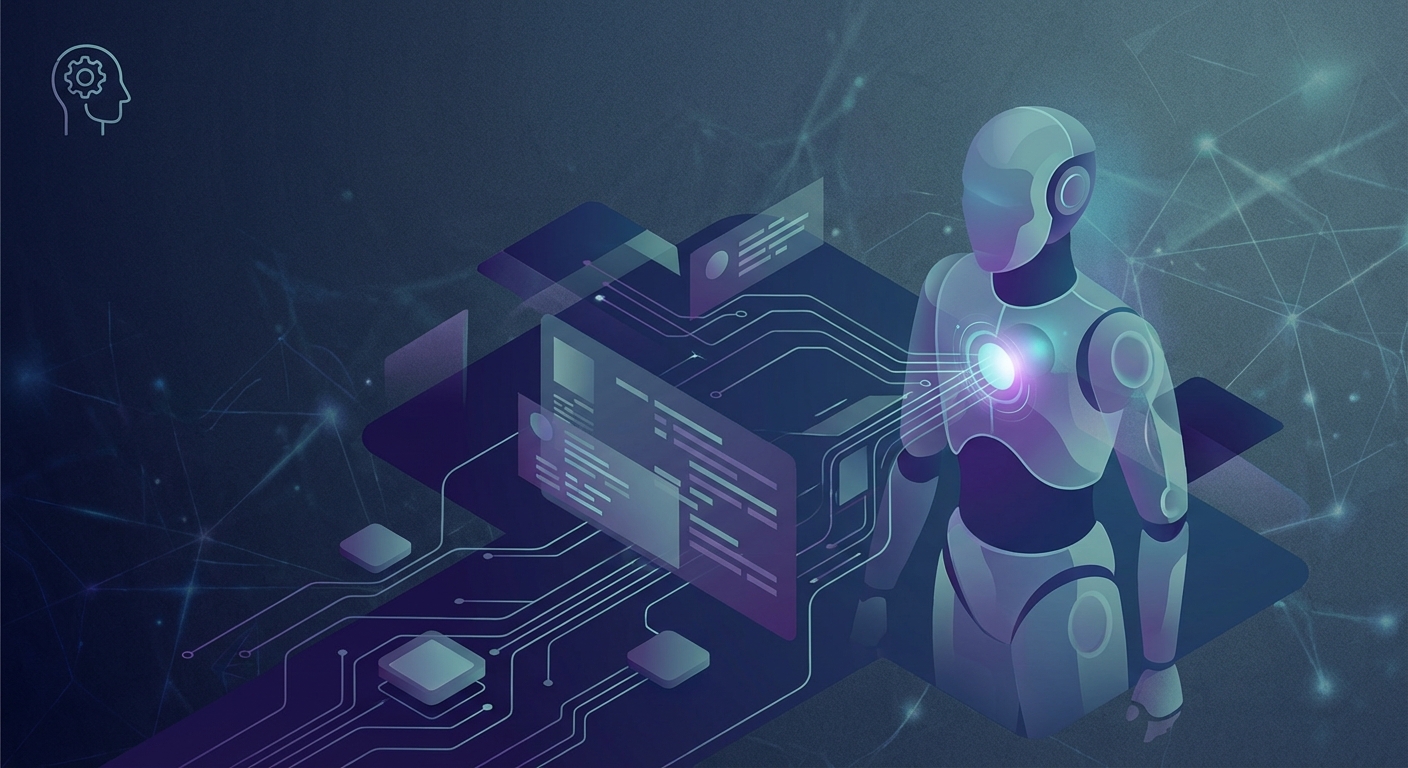Navigating Agent Orchestration: Emerging Challenges and Future-Proofing Strategies
TL;DR
- This article covers the complexities of AI agent orchestration, highlighting emerging challenges in security, governance, and integration. It provides actionable strategies and best practices for enterprise leaders to navigate these hurdles, optimize AI deployments, and future-proof their automation initiatives, ensuring responsible and scalable AI adoption.
Introduction: The Rise of Agent Orchestration and Its Enterprise Impact
Agent orchestration is really changing how businesses get complex stuff done. It's all about getting a bunch of ai agents to work together, kinda like a conductor leading an orchestra.
ai agent orchestration coordinates multiple ai agents to do big tasks. It's not like old-school automation, which usually just has one system doing one thing. For example, in customer service, one ai agent might handle the first questions, and then another one suggests products.
ai agent orchestration can also make sales and supply chain stuff smoother. Different agents can team up to make workflows better and just boost how well everything works overall.
The market for ai agent orchestration is growing super fast. (IBM delivers AI agent orchestration innovations at Think 2025) This boom is because companies need to be more efficient, get more done, and come up with new ideas across all sorts of industries.
Businesses get a lot out of ai agent orchestration – better efficiency, more productivity, and more innovation. Like, companies can automate complicated workflows, make operations run smoother, and make smarter decisions.
As we dig in, we're gonna look at the challenges and ways to make agent orchestration ready for whatever's next.
Emerging Challenges in Agent Orchestration: A Deep Dive
Agent orchestration is really shaking things up for how businesses automate complex tasks. But, to do this right, you gotta know what the tricky parts are.
One of the biggest headaches in agent orchestration is security. There's a bunch of places where things can go wrong, like with data privacy and following rules, especially with stuff like GDPR and CCPA. For instance, when agents are constantly sharing data to complete a task, like an order processing agent sharing customer details with a shipping agent, encryption is key to making sure that data doesn't get intercepted. Without proper encryption, sensitive customer information could be exposed. Similarly, access controls are vital. Imagine an ai agent that handles financial data; you wouldn't want just any agent to be able to access that. Access controls ensure only authorized agents can interact with specific datasets, preventing unauthorized access or accidental data leaks. Threat detection systems then act as the watchful eyes, constantly scanning for unusual activity that might indicate a breach, like an agent suddenly trying to access a vast amount of customer PII it normally wouldn't.
Putting good security measures in place is a must to deal with these risks.
- Encryption: Keeps data safe both when it's moving and when it's just sitting there.
- Access controls: Limits who can get to important info and systems.
- Threat detection: Spots and deals with potential security problems.
Companies also need to set up clear rules to make sure ai practices are ethical, meaning they're fair, don't have bias, and are transparent. (Building a Responsible AI Framework: 5 Key Principles for ...)
Setting up clear governance frameworks is super important for handling the ethical side of ai agent orchestration. It makes sure things are fair, catches bias, and makes it all more open.
Meeting all the rules and industry standards, like SOC, HIPAA, and PCI, is another big hurdle. (Top 10 Compliance Standards: SOC 2, GDPR, HIPAA & More) Organizations have to do things the right way for ai governance, including:
- Policy management: Sets the rules for how ai is used.
- Risk assessment: Figures out what could go wrong with ai.
- Audit trails: Keeps track of what the ai does so you can prove you're following the rules.
Trying to get ai agent orchestration to work with existing company systems can be tricky, and so can making different ai agent systems talk to each other.
Smooth integration needs things like:
- api-first approach: Designs systems so they can easily connect with others.
- Microservices architecture: Breaks down big programs into smaller, separate pieces.
- Data flow management: Makes sure data moves easily and efficiently.
Getting past these challenges is key to making agent orchestration ready for the future, and next up, we'll talk more about those future-proofing strategies.
Technical Challenges and Solutions in AI Agent Orchestration
Agent orchestration is kinda like conducting a symphony, but what happens when the instruments (ai agents) go off-key? This part gets into the tech problems and how to fix them so your ai orchestra stays in tune.
One big problem is scalability. As you get more agents and more tasks, the system can get overloaded. Think about cramming too many musicians into an orchestra without making the stage bigger—it gets messy and chaotic.
- Spotting potential scalability issues is really important. Look for signs like slower responses, the system crashing, or running out of resources. More specific to agent orchestration, you might see agent communication queues backing up, meaning agents are waiting too long to talk to each other, or you might notice that when one agent fails, it causes a domino effect of failures in other agents that depend on it, especially when the system is under heavy load.
- Making agent performance better means tweaking the algorithms, writing more efficient code, and spreading out the work. Load balancing makes sure no single agent gets swamped.
- Scaling strategies involve both making your current machines more powerful (vertical scaling) and adding more machines (horizontal scaling). Resource management makes sure computing power, memory, and network bandwidth are used well.
Think of monitoring and logging as the eyes and ears of your ai system. Without them, fixing problems is like trying to find a needle in a haystack.
- Good monitoring and logging are essential for watching how agents behave and how the system is doing. This includes things like how fast it responds, how many errors there are, and how much it's using.
- Figuring out and fixing problems needs the right tools and methods. Centralized logging systems, debuggers, and performance profilers can help find the issues.
- Setting up alerts and notifications is super important for catching problems early. Automated alerts can tell you about big issues, so you can fix them before they affect people.
Data is what powers ai agents. Bad data can lead to wrong answers and unreliable performance.
- Problems with managing data include making sure data is consistent, handling lots of data, and dealing with data security.
- Making sure data is good means checking it, cleaning it, and changing it. Data governance rules help keep data accurate.
- Good data management strategies include data governance plans, ways to combine data, and processes to check data.
Tackling these tech challenges head-on makes sure your ai agents work well and efficiently. Next up, we'll look at future-proofing strategies to keep your agent orchestration strong and adaptable.
The Human Element: Change Management and Skill Gaps
It's easy to get caught up in the tech stuff, but for ai agent orchestration to work, you also gotta deal with the people side of things. If you ignore this, you can end up with people pushing back, things not working right, and the whole project failing.
To handle ai-driven automation well, you need good change management. Telling people why agent orchestration is good is really important. Employees need to get how these tools can help them do their jobs better, not just replace them.
Getting employees involved in setting things up makes them feel like they own it. For example, people working in retail can give great ideas on how ai agents can make inventory management or customer service better.
Figuring out what skills are needed is key for ai agent orchestration to work. This includes knowing about ai, data science, and automating processes.
Training people up and teaching them new skills can help close the skill gap. For instance, finance folks can learn to use ai tools for finding fraud and assessing risk. Working with outside experts can also bring in special knowledge.
Good teamwork and communication are vital between different teams. Setting clear roles and responsibilities makes sure everyone knows their part in the orchestration process.
Using tools for teamwork can make communication easier. Project management software and shared documents can help teams stay on the same page. As Olivier Jouve says, ai should be moved up from just a feature to a whole platform to line up how we deliver experiences with how the company does.
Dealing with the human side makes the switch to ai agent orchestration go smoother. By managing change, closing skill gaps, and encouraging teamwork, companies can get the most out of this game-changing tech.
Next, we'll check out future-proofing strategies to make sure your agent orchestration stays strong and adaptable.
Future-Proofing Your AI Agent Orchestration Strategy
Agent orchestration isn't just some far-off idea; it's something businesses need right now if they want to make their complex workflows better. So, how can companies make sure their ai agent orchestration strategies keep working and can adapt as technology changes super fast?
Looking into what multimodal agents can do can really boost ai capabilities. These agents can handle different kinds of information, making interactions more natural and intuitive. Better reasoning skills improve how ai agents make decisions.
More independence means ai systems can work on their own more. Staying on top of ai frameworks and solutions helps companies stay competitive.
Designing ai agent orchestration systems that can adjust to different situations is really important. A modular setup makes it easy to add things and scale up. Using Continuous Integration and Continuous Delivery (CI/CD) pipelines makes sure new stuff gets out quickly and reliably.
Creating a culture that encourages trying new things and learning is essential. Letting employees take charge and make smart choices about using ai helps get people on board. Celebrating wins and learning from mistakes helps things get better all the time.
As companies get used to ai agent orchestration, it's important to remember this isn't just a tech change, but a culture change too.
Strategic Recommendations for Enterprise Leaders
Here's how enterprise leaders can make the most of agent orchestration. Smart investments and developing talent are key.
Companies should put money into ai agent orchestration projects in a smart way. Balance getting quick wins with long-term innovation. Measuring the return on investment helps show why these projects are worth it.
- Put money aside for ai agent orchestration projects. This makes sure there are enough resources for building and rolling things out.
- Balance quick results with steady growth. Don't just focus on what you can get right away if it means hurting long-term projects.
- Figure out how much ai agent orchestration is actually helping. Use numbers to show where things got more efficient and costs went down.
Building a team with the right skills is super important for ai agent orchestration. Training current employees and teaching them new skills helps fill in the gaps. Getting top talent from colleges makes sure there's a steady stream of expertise.
- Grow expertise in ai, ml, and data science. This makes sure employees can handle agent orchestration well.
- Train current staff. Upskilling fills gaps and gets the most out of the people you already have.
- Hire talent from good schools. This brings new ideas and advanced skills to the company.
Clear rules and guidelines are essential for ai agent orchestration. Being open, able to explain things, and fair in how ai makes decisions are vital. Make sure ai systems match what the company believes in and its mission for responsible use.
- Set rules for using ai. This makes sure agent orchestration practices are ethical and follow the rules.
- Make sure ai's decisions are clear and fair. Build trust with ai systems that are open and just.
- Connect ai with what the company wants to do. This lines up ai projects with the company's goals.
As companies start using ai agent orchestration, thinking about ethics and doing things right becomes really important.
Conclusion: Embracing the Future of AI Agent Orchestration
ai agent orchestration is changing businesses, but what's next? As tech gets better, agent orchestration will become even more important for companies that want to make their workflows better and come up with new ideas.
- Multimodal agents will handle different kinds of info, leading to more natural interactions. Better reasoning skills will improve how ai makes decisions.
- More independence will let ai systems work on their own. Staying up-to-date with ai frameworks and solutions helps companies stay competitive.
- Systems that adapt will adjust to different situations. Modular setups and CI/CD pipelines make sure new stuff gets out fast.
Creating a culture that encourages trying new things is essential. This lets employees take ownership of ai use and make smart choices. Celebrating successes and learning from mistakes helps things get better all the time.
As companies get used to ai agent orchestration, remember this isn't just a tech change, but a culture change too.






